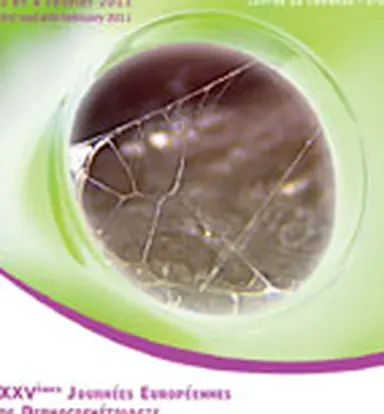
They are more and more frequently mentioned on the labels of our cosmetic products. Whether to act on those already present in our skin tissues or to bring others (extracted from plants) to our skin, stem cells are never mentioned without being associated with unmatched performance in terms of cell regeneration and anti-ageing effect. Should we believe these promises? What can be expected from researches on stem cells? The XXV European Dermocosmetology Days, held in Lyon (France) on February 3 and 4 under the auspices of the European Dermocosmetology Centre, have been the opportunity to take a scientific assessment on the subject. Report.
February 7, 2011
Among some 75 to 100,000 billion of cells present in a human body, stem cells have a very special status.
On one hand, they have the ability to self-renew, to maintain a reservoir of stem cells throughout life. Originally undifferentiated (or in a more common language: non-specialized), they have on the other the power to create, through their divisions, and with a extraordinary proliferation potential, countless of more or less differentiated cells (or specialized in a specific role). Exceptional properties, which justify the interest they are receiving today.
A large family … still not very well known
There are numerous different types of stem cells.
They can thus be distinguished according to the age of the subject in which they are present: embryonic, fetal, adult … embryonic stem cells receiving special attention from researchers, since they are the most undifferentiated (they can create a whole organism) and those that offer the greatest opportunities and perspectives … Their use is of course subject to ethical questions, but note that scientists know now reprogram adult stem cell to restore the properties of an embryo one.
They can also be distinguished according to their location in the human body. Michele …












